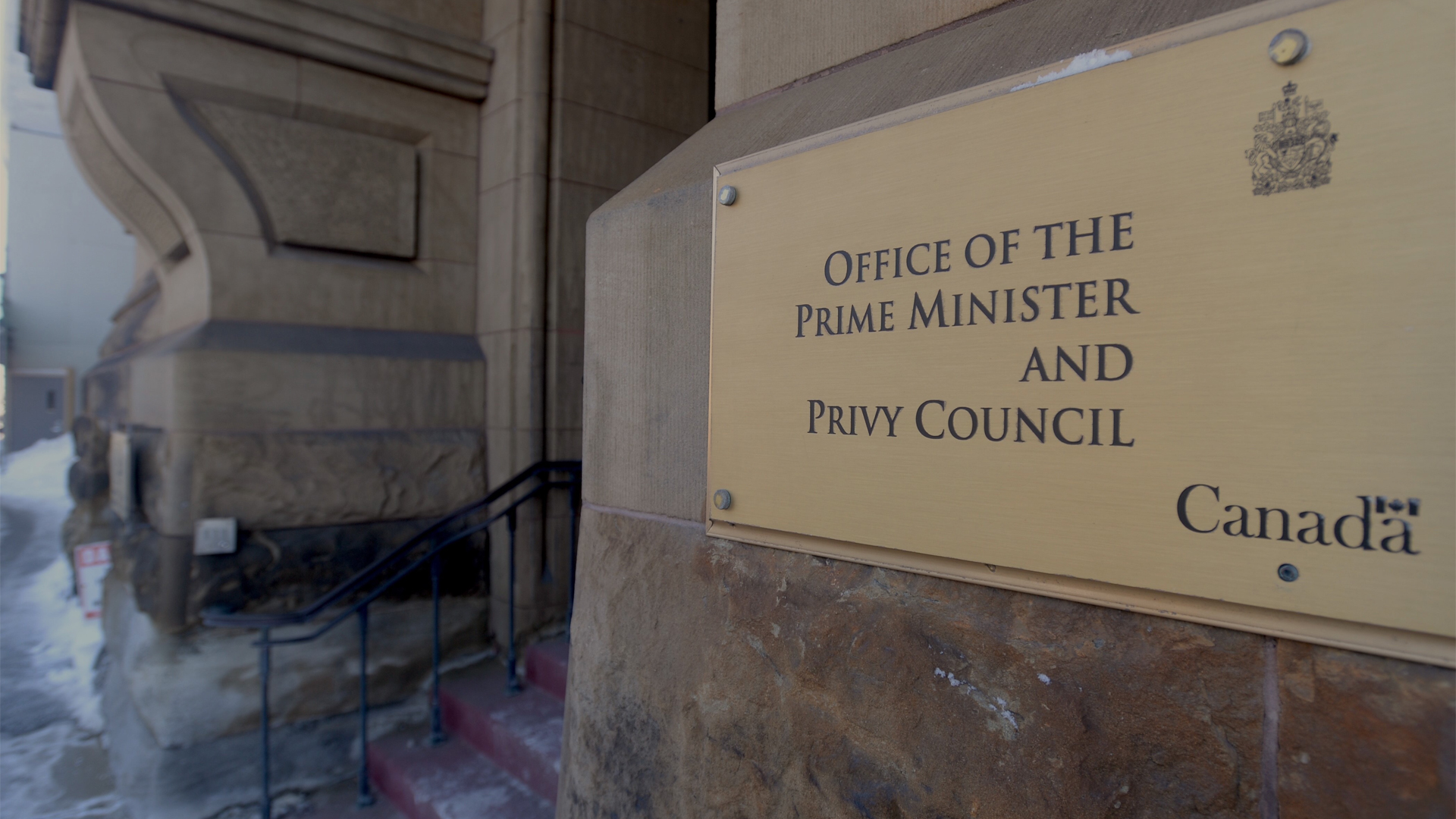
Canada’s public service leaders have a problem telling the truth to their political bosses.
A new report, Top of Mind, says they feel ill-equipped to gather evidence for policy advice, especially in a world where facts are distorted and drowned out by disinformation, polarization and hyperpartisan politics.
To make matters worse, they appear afraid to tell their political masters the hard truths when they do find them.
Getting back to the basics in policy-making and execution are among the top worries that senior bureaucrats raised in the new study into the state of the public service In Canada. It was conducted by two think tanks, the Ottawa-based Institute on Governance (IOG), and the Brian Mulroney Institute of Government at St. Francis Xavier University.
The study, launched in the middle of the pandemic, was aimed at understanding the challenges these executives face when doing their jobs, which is to provide reliable, well-run services for Canadians as well as policy advice to ministers. It was based on interviews with 42 senior leaders from all levels of government and a survey of 2,355 public servants in the same departments and agencies.
The big worries – which many felt were accelerated by the pandemic – included falling trust in government; the decline in sharing “fearless advice”; a hollowing out of policy capacity; a post-pandemic economic reckoning; conflicts between different levels of government; and the need for public service reform.
The report didn’t dig into the root causes, but the responses raise enough red flags to justify a debate and development of a roadmap for reform, said Stephen Van Dine, IOG’s senior vice-president, public governance.
“We have enough from this report to say we better be looking into this,” he said.
An impartial public service is a cornerstone of Canada’s democracy. Bureaucrats are supposed to speak truth to power. The ethos of “fearless advice and loyal implementation” is its motto, and public servants take an oath to uphold it when hired.
“The participants felt rational thought and evidence-based decision-making are being circumvented by politicization, polarization and disinformation,” said Van Dine.
“Do public servants have access to enough truth to give fearless advice? If all their information is coming from above rather than from networks in and outside government, how much truth is there really? What happened to the role of public education in the policy development process?”
Canada’s parliamentary watchdogs struggle for more financial independence
Some public service executives burned out by crisis management
The responses paint a picture of a bureaucracy that’s too isolated from Canadians and not independent enough from politics, said Van Dine.
Over the years, rules restricting travel and hospitality expenses put a damper on public servants’ ability to meet with provincial counterparts, industry representatives and civil society. They aren’t networking, developing contacts outside of government, or educating Canadians about the factors at play in policy-making.
“This has isolated the public service from the outside world and given the outside world the only door into government, which is through the Prime Minister’s Office or a minister’s office,” said Van Dine.
But public servants need new skills and modern technology. They need people who think digital, understand systems, analytics, data and can manage projects. That means attracting people to government and hiring them more quickly than the eight months it takes now.
All of this is having an impact on a long-strained relationship between public servants and ministers. Two-thirds of respondents said that relationship was “an important challenge that requires more effective management.”
Many respondents said the relationship is being eaten away by the “over-politicization of policy-making and choices, and the lack of opportunity to constructively challenge political direction.”
The report concluded that “speaking truth to power…seems less achievable to many participants.” Bureaucrats don’t have “safe spaces” among themselves to have all-out debates about analysis or options that “are unpopular“ or “not in tune with their government’s political position.”
Instead, they are expected to toe the party line and give politicians the advice they want to hear.
It’s unclear why. Is it because the deputy ministers aren’t encouraging dissent? Are bureaucrats holding back for fear of falling out of favour with their bosses or being seen as disrespectful?
“The strong undercurrent is that the public service has lost an element of independence and is now expected to deliver on platform commitments rather than offer objective policy advice on the feasibility of the commitment or alternative ways to achieve the objective of the platform commitment,” said the report.
This is an old problem.
Experts sounded the alarm more than 25 years ago about public servants’ hesitancy to speak to truth to power. It led to the 1996 Tait report, the foundation of the public service’s values and ethics code.
Donald Savoie, a leading public administration expert, has repeatedly warned that the concentration of power in the Prime Minister’s Office is politicizing the public service. He likened it to “court government” where senior officials act like courtiers trying to ingratiate themselves, rather than delivering hard truths.
The Gomery inquiry concluded that a grey zone between bureaucrats and politicians was at the heart of the sponsorship scandal and recommended ways to reset it.
Social media is complicating the age-old neutrality of the public service
The late auditor general Michael Ferguson famously linked the Phoenix pay system disaster to a risk-averse and “obedient public service.” He concluded that the “ability to convey hard truths has eroded, as has the willingness of senior levels—including ministers—to hear hard truths.”
Despite these warnings, little has been done to fix the problem. The Harper government introduced the Federal Accountability Act in response to the sponsorship scandal, but many experts argue its focus on rules, oversight and compliance made matters worse.
Today’s deputy ministers climbed the ranks over the 20 years since the sponsorship scandal and the Federal Accountability Act is the world they know. Many argue they got to the top because of their skills in dodging risks, following the rules and keeping government out of trouble.
In the new Top of Mind report, it is unclear how a lack of fearless advice is “cascading” down the ranks. Van Dine worries that assistant deputy ministers aren’t speaking up as they should now that Public Service Commission has turned over “talent management” to the deputy ministers who appoint them.
“Now the deputy minister is holding all the cards about promotion and appointment… To what extent are they becoming more deputy servants than public servants?” he asks.
The Harper era is also when public servants found themselves drawn into partisan communications with directives, events, activities and website designs to promote the Conservative Party brand.
Today, some respondents worry that a focus on communications is supplanting policy. The current focus is on how a policy will play out or how its “messaging” will be received by Canadians, rather than getting to the nub of the issues the government wants to address.
“Make stuff less about the announcements and actually make it about the issue,” said one leader, quoted in the report. “Communicate with Canadians on that front—what is the problem you are trying to fix here?… People have the basics wrong, and it leads to bad discord.”
The Top of Mind report makes a series of recommendations that could lead to a top-to-bottom overhaul of the federal public service.
At the top of the list is a proposal for a joint Senate-Commons committee to review the Accountability Act, zeroing in on whether its onerous compliance and reporting requirements stifle innovation and create an obedience culture.
The paper also recommended modernizing the ground rules for relationships between bureaucrats and politicians and examining what’s needed for public servants to create “safe spaces for fearless advice,” so they can provide facts, analysis and policy options that don’t toe the government’s party line.
This article was produced with support from the Accenture Fellowship on the Future of the Public Service. Read more of Kathryn’s work here.










